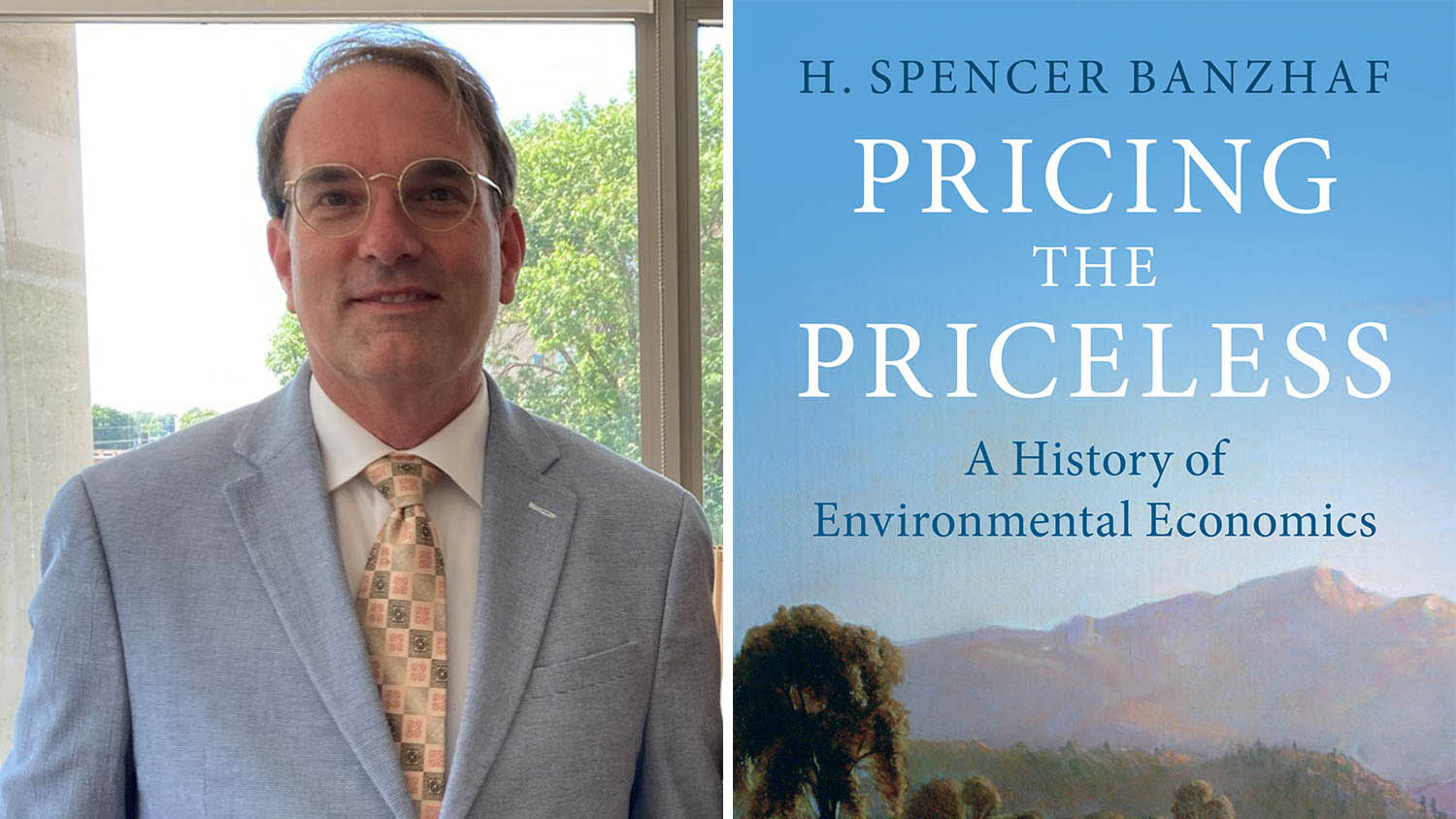Exploring the Emergence of Environmental Economics

There is no shortage of complex global challenges these days — the least of those being how to prosper economically in an environmentally sustainable way.
That conundrum has been slowly simmering for more than 50 years as economists and environmentalists have increasingly raised questions about the clash between what’s best for economic growth and what’s best for environmental prosperity.
Spencer Banzhaf, professor of agricultural and resource economics and director of the Center for Environmental and Resource Economics Policy at NC State University, takes those issues head on in his new book, Pricing the Priceless: A History of Environmental Economics. Offering the first book-length study of the history of modern environmental economics, Banzhaf explores the unlikely role economists have played in developing tools and instruments in support of environmental preservation.
We caught up with Banzahf to learn more about his passion for the intersection of economics and the environment and how he hopes the continued evolution of the field will help lead to positive change.
What inspired you to write this book?
I’m an economist who specializes in the economics of environmental policy. People often associate economics with numbers and mathematical models, but I’ve always thought of economics as a kind of narrative, a set of stories about the world. (Sometimes very mathematical stories!) So, when you think of economics that way, it becomes natural to tell a richer story with historical valiances. That’s what I wanted to do in this book.
What is environmental economics and how does it differ from traditional economics?
Environmental economics has really co-evolved with the broader field of economics. One hundred years ago, economics was about production of material goods. There was — and remains — a field called “natural resource economics,” which focuses on the use of resources as inputs into that production. But early efforts to think about the role of more immaterial aspects of the environment, such as the simple beauty of a landscape, were resisted as outside the scope of economics.
When did environmental economics emerge as its own field of study?
In the 1960s or so, “economics” redefined itself as the study of tradeoffs, homing in on the use of scarce resources — even something like time — for competing ends. And since there is always a tradeoff between developing an area or preserving it in its scenic state, people realized economics had something to say about that. Fortuitously, the timing in the 1960s coincided with the budding environmental movement, so it became a topic of increasing urgency to study.
What are some key events over the years where environmental economists have played a significant role?
Economics and economic reasoning have been used to evaluate the merits of many hot-button issues over the years. In the early 20th century, economic benefit — defined then as material well-being — was used to justify damming the Hetch Hetchy Valley in Yosemite to provide drinking water to San Francisco. It similarly was used to justify other dam projects over the next 50 years. That began to change in the 1970s, when economists started to better document the tradeoffs of such development, including environmental costs. The evaluation of the Tellico Dam in Tennessee, which became the focal point for early battles over how much bite the Endangered Species Act would have, is one example of where the balance began to shift.
What do you see as some of the main environmental economic issues facing us in the years ahead?
Lots! But without question, climate change is the mother of all environmental challenges, big in scale and enormously difficult to tackle. There are tradeoffs everywhere, between expanding access to energy for billions of people on the earth who suffer from a lack of it to healthy air free of smog to climate to the geographical differences in who benefits and who loses from each of these decisions. It’s an issue that requires almost every field of expertise, including economics, to come together to tackle.